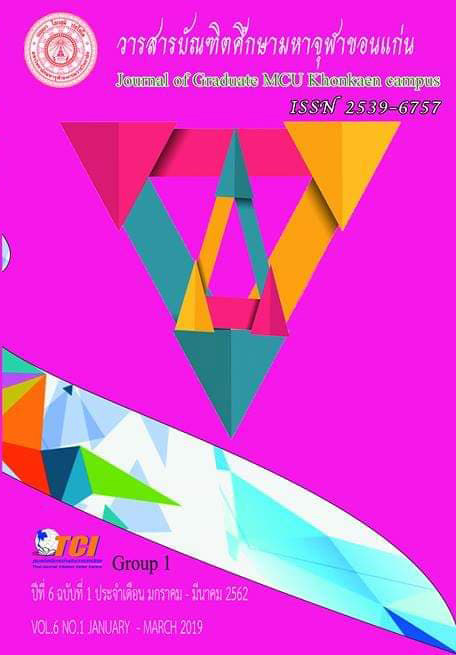E-San Pholosophy Effecting to an Ethical Behaviour
Main Article Content
Abstract
The influence of E-san philosophy on ethical behavior has 7 aspects: the general condition of society. Economic conditions Politics and government Proverbs The proverbial teachings. And The puzzle The Puzzles.
The general condition of this society is a reminder to be neutral in the society of all ages, whether it will change over time or the situation. Ready to change in a better way. Economic conditions The E-san people are determined to work hard, endeavor to work with patience and patience. It has resulted in many successes. The life of the people in E-san. Politics and government Effect on the warning to teach the gradual. Do not do anything by lack of consciousness, lack of reflection, or lack of information. The proverbial teachings have a strong influence on E-san people. Make the life of the people of E-san to miss you and blame for their actions. The motto of the Proverbs is to make life unselfish. Get to know your relatives or friends. Not too distant. If it is too distant, it may make the familiar or a good relationship will reduce. This puzzle game. The result is a beautiful way of life. Have faith in the gemstone. Respect the elderly Honor each other There are sacrifices for the collective benefit.
Article Details
References
Lanchang People. Khonkaen: Klangnanawittaya Press.
Charuwan Thammawat. (2002). Folklore of E-San. Bangkok: Aksornwattana
Press.
Chiraphat Kaewku. (1998). Poem and Verse of E-San. Bangkok:
Mahachulalongkornrajavidyalaya Press.
ChobDeesuankok. (2004). Many words in E-San. Khonkaen:
Klangnanawittaya Press.
Phreechar Phinthong. (1991). Proverb ancient of E-San. Ubonratchathani:
Siridham offset.
Udom Buasri. (2003). Cultural of E-San. Khonkaen: Klangnanawittaya Press.

